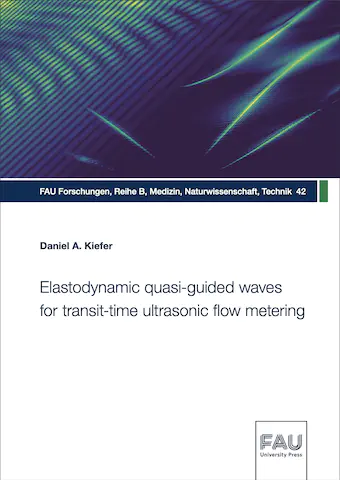Elastodynamic quasi-guided waves for transit-time ultrasonic flow metering

Abstract
A non-invasive ultrasonic flow meter is studied for which the pipe remains unperforated and without obstructions in its interior. Elastic waves that are excited inside the pipe wall interact with the adjacent fluid to form quasi-guided waves. These can be either of leaky or trapped kind. The radiation of the leaky waves is exploited to insonify the pipe’s interior. The quasi-guided waves are studied in-depth with particular emphasis on their radiation behavior. Highly reliable and efficient computational methods are developed for this purpose. The ultrasonic transit time in the flow meter is modeled systematically based on the aforementioned waves. Thereby, the effects of fluid flow and temperature are included explicitly in an analytical manner. Compared to conventional ultrasonic flow meters, we find that devices based on quasi-guided waves exhibit a strongly reduced cross-sensitivity to temperature, which is also confirmed experimentally. The developed analytical and numerical techniques enable a systematic optimization of such devices with regard to their temperature-dependent behavior, geometrical uncertainties, material aging, as well as scaling and deposition of other layers.
Obtain the print version from FAU University Press (Band 42).